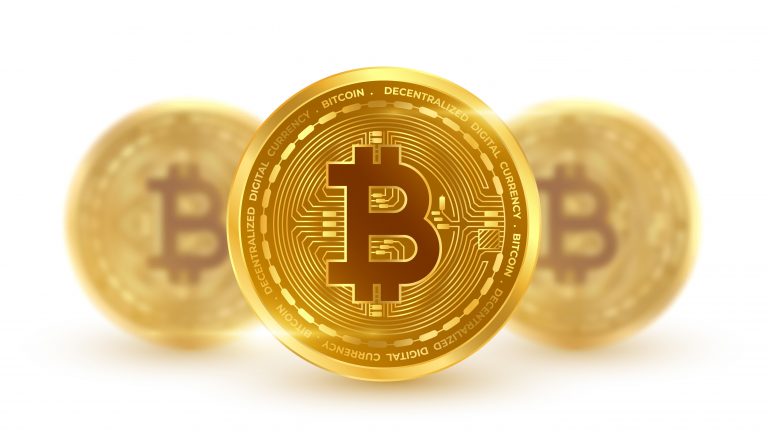Amidst the swiftly changing intersection of financial systems and technological advancements, cryptocurrencies have materialized as a distinctive and captivating category of assets. This exposition explores the attributes that prop up Bitcoin’s status as a contemporary counterpart to traditional gold, elucidating pivotal elements that underpin its inherent characteristics as a reservoir of value. Check out the updated website of Nerdynator and you will surely fall in love with its advanced trading resources and tools. Get started now!
The Evolution of Store of Value: From Gold to Bitcoin
Gold: A Timeless Store of Value
Across the annals of time, gold has commanded an esteemed position as an enduring repository of value. Revered for its scarcity, unwavering durability, and innate allure, gold has emerged as a coveted asset, cherished both for its potential as an investment and its role in embellishment. Spanning civilizations and epochs, the luster of gold has been cherished for its unique capacity to uphold its value through the tides of history, undeterred by the tumultuous winds of economic upheaval.
Bitcoin: The Digital Gold
Within the 21st-century landscape, a novel aspirant vying for the appellation of “digital gold” has surfaced in the form of Bitcoin. Birthed in 2009 by an enigmatic figure or collective under the pseudonym Satoshi Nakamoto, Bitcoin introduced the groundbreaking notion of a decentralized digital currency, altering traditional financial paradigms. Sharing resonances with gold, Bitcoin boasts an array of attributes that converge to bolster its prospects as a reservoir of value, thereby capturing the essence of a modern-day store of worth.
Comparing Key Store of Value Attributes
Scarcity and Supply Cap
Gold’s scarcity is a cornerstone of its value. The limited supply of gold ensures that it cannot be easily inflated, preserving its worth. Similarly, Bitcoin’s design includes a capped supply of 21 million coins, making it deflationary by nature. This scarcity-driven model has led proponents to draw parallels between the two assets.
Durability and Immortality
Gold’s durability is evident in its ability to withstand the test of time without corroding. Likewise, Bitcoin’s blockchain technology ensures its immutability and resistance to tampering. Transactions are securely recorded on the blockchain, contributing to Bitcoin’s credibility as a durable digital asset.
Divisibility and Portability
Gold’s divisibility allows it to retain value in various quantities, from small fragments to sizable bars. Bitcoin, divisible to eight decimal places, offers a level of divisibility that traditional currencies often lack. This attribute, combined with its digital nature, grants Bitcoin high portability and ease of transfer across borders.
Global Acceptance and Recognition
Gold’s universal acceptance as a store of value has been established over centuries of use in trade and investment. Bitcoin, while relatively new, has gained substantial recognition and adoption. Major companies, institutional investors, and even some governments have shown interest in Bitcoin, bolstering its status as a potential store of value.
Security and Ownership
Gold’s physical nature requires secure storage solutions to prevent theft or loss. Bitcoin’s cryptographic security measures, including private keys and digital wallets, offer a different yet equally robust form of protection. However, the digital landscape also introduces new challenges, such as the need for safeguarding against cyber threats.
Risks and Considerations
Volatility and Market Maturation
Both gold and Bitcoin exhibit volatility, although their sources differ. Gold’s price can be influenced by geopolitical events and economic fluctuations. Bitcoin, on the other hand, experiences volatility driven by factors such as regulatory developments, technological advancements, and market sentiment. As the cryptocurrency market matures, some experts anticipate reduced volatility.
Regulatory Landscape
Gold operates within established regulatory frameworks, varying from country to country. Bitcoin’s decentralized nature has led to debates about its regulatory status. The evolving regulatory landscape for cryptocurrencies adds an element of uncertainty that investors must consider.
Conclusion: Bitcoin’s Emerging Role as Digital Gold
In conclusion, the comparison between gold and Bitcoin as a store of value assets reveals intriguing parallels and distinctions. While gold’s history and cultural significance are deeply ingrained, Bitcoin offers a revolutionary digital alternative with its own set of unique attributes. As the financial world continues to evolve, Bitcoin’s emergence as a potential digital gold suggests a shifting paradigm in how society perceives and utilizes stores of value. While both assets come with their own set of opportunities and risks, their coexistence highlights the expanding range of options available to modern investors.

